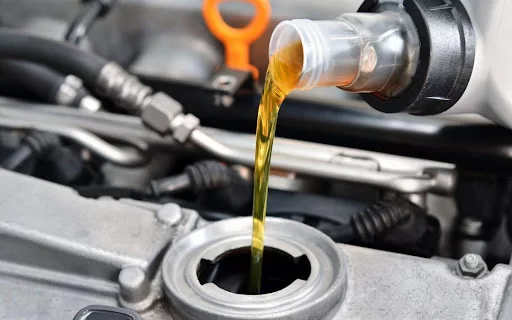
Synthetic vs. Conventional Oil: Understanding the Differences
When it comes to choosing the right type of oil for your vehicle, the options can seem overwhelming. The debate between synthetic and conventional oil has been ongoing for many years, with each type of oil having its own pros and cons.
Synthetic oil has been gaining popularity over the years thanks to its superior performance and durability. But what exactly is the difference between synthetic and conventional oil, and which one should you choose for your vehicle?
In this article, we’ll explore the key differences between synthetic and conventional oil, so that you can make an informed decision about which oil to choose for your car.
What Is Synthetic Oil?
Synthetic oil is created through a chemical process that involves converting crude oil into a more refined oil. This process removes impurities and breaks down the crude oil into smaller molecules to create a more stable and consistent product. Synthetic oil is designed to offer superior performance and protection for your engine, even in extreme temperatures.
What Is Conventional Oil?
Conventional oil, on the other hand, is made from naturally occurring crude oil that is collected from the ground. The crude oil is then refined to remove impurities and is blended with additives to help improve its performance. Conventional oil is a good choice for everyday driving and is typically less expensive than synthetic oil.
Key Differences Between Synthetic and Conventional Oil
So, what are the key differences between synthetic and conventional oil? Here are a few things to consider:
Protection: Synthetic oils contain higher-quality base oils that are more extensively processed and offer better baseline performance. Most synthetic oils also contain a better mixture of additives compared to conventional oils, which improves overall performance and provides superior engine wear protection.
Performance: Synthetic oils offer more enhanced performance than conventional oils by way of anti-foam agents, emulsifying agents, corrosion inhibitors, and antioxidants. Synthetic oils are also designed to perform better in extreme temperatures, making them a good choice for drivers who live in areas with very high or very low temperatures.
Longevity: Once you add up the individual benefits of using a synthetic oil, it shouldn’t be a surprise to learn that synthetic oils can contribute to longer engine life. Synthetic oils are more resistant to breaking down, which means they’ll last longer in your engine and keep your engine in better shape. They also maintain their lubricating properties longer than conventional oils, which can result in improved fuel economy.
Switching: There’s a myth that switching oil types during the lifecycle of your engine can result in engine wear like leaks and other damages, especially if you drive an older model. But the truth is, you can switch from conventional to synthetic without consequence. Just make sure to consult your owner’s manual and have your oil changed within the allotted time frame, typically every 6-12 months.
Making the Right Choice
Ultimately, both synthetic and conventional oil have their own advantages and disadvantages, and the type of oil you choose will depend on your individual needs and preferences. However, if you’re looking for superior protection, performance, and longevity for your engine, synthetic oil may be the way to go.
If you’re interested in trying synthetic oil, Valvoline Advanced Full Synthetic is a good choice for your engine. It’s specifically designed to offer superior protection against engine wear and maintain its properties longer than conventional oils. Plus, it’s available in a variety of grades to suit different engines.
However, it’s important to note that regardless of the type of oil you choose for your vehicle, it’s crucial to have regular oil changes to keep your engine running smoothly. Always consult your owner’s manual and consult oil change Brampton to ensure proper engine maintenance. Valvoline oil changer Brampton offers premium quality oil for your vehicle.
Conclusion
Choosing the right type of oil for your vehicle can be a challenging decision, but it’s important to understand the differences between synthetic and conventional oil so that you can make an informed choice. Synthetic oil offers superior protection, performance, and longevity for your engine, but it is also more expensive. On the other hand, conventional oil is less expensive and a good choice for everyday driving. Ultimately, the choice is yours, but make sure to always consult your owner’s manual and have your oil changed regularly to keep your engine running smoothly.

